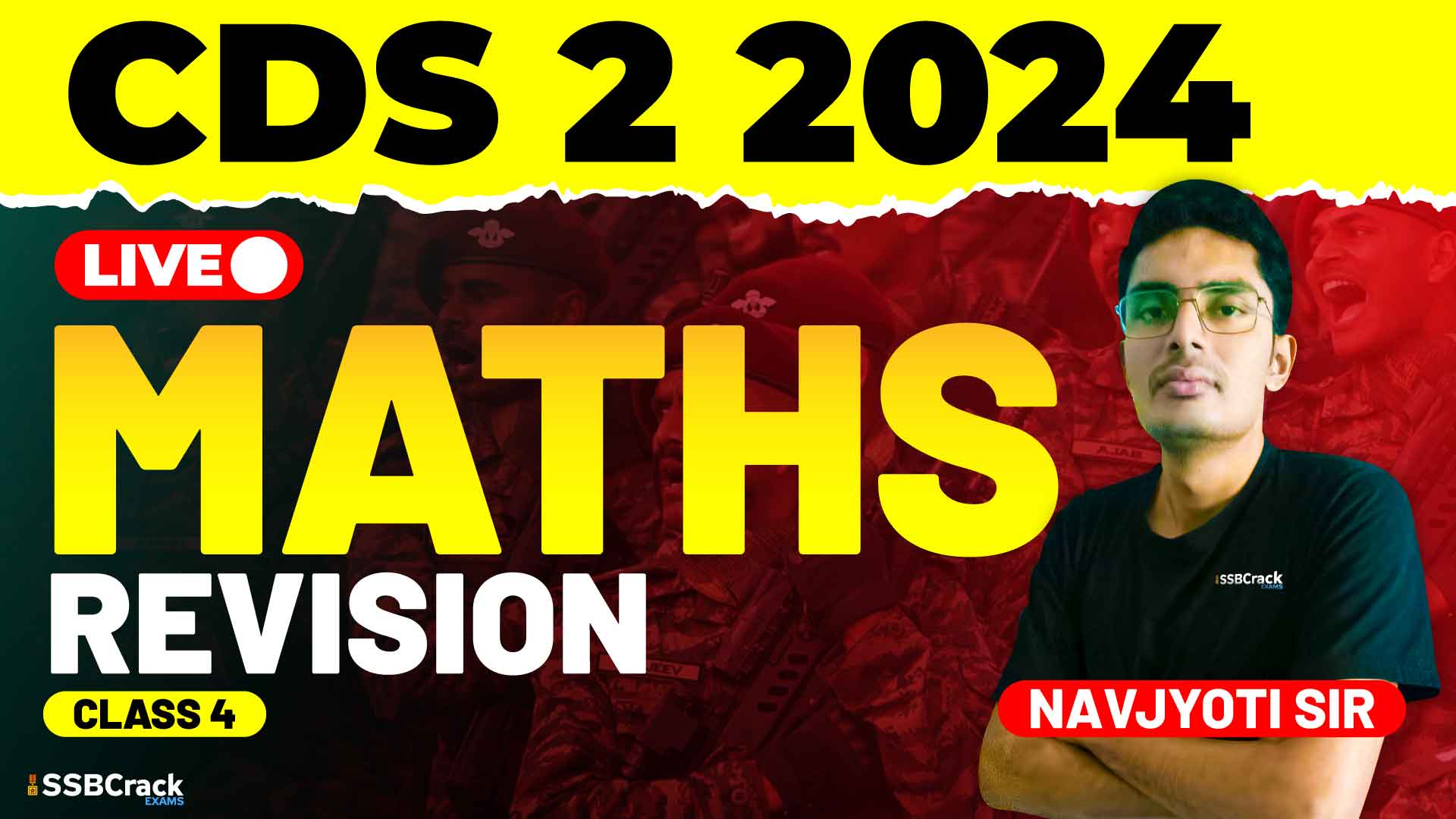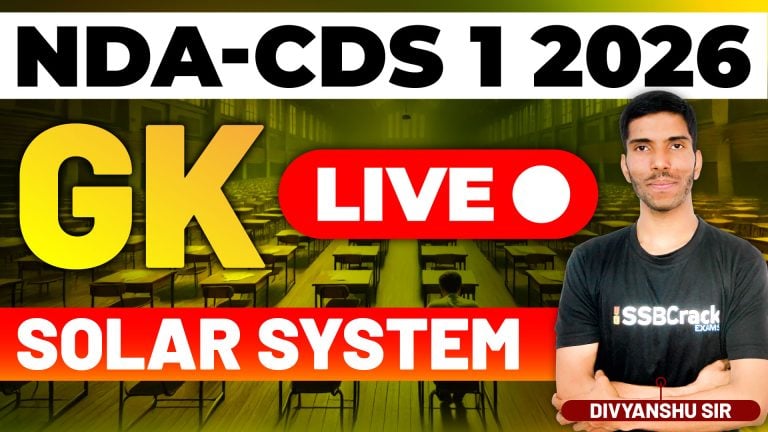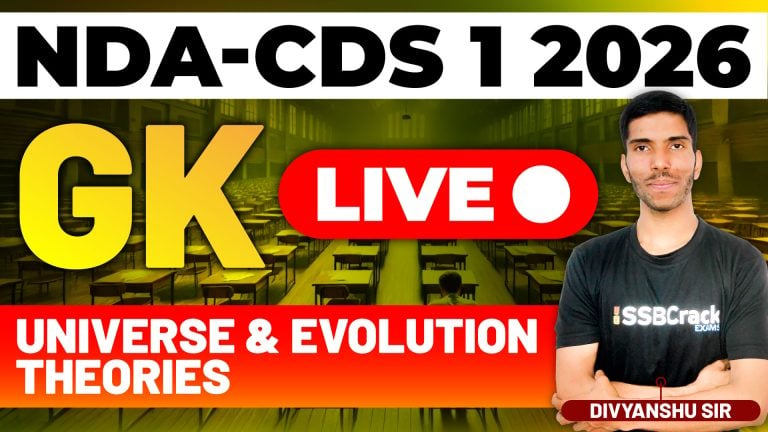When preparing for the Combined Defence Services (CDS) exam, mastering the topic of “Time and Work” in Elementary Mathematics is essential. This topic is a staple in competitive exams and requires not only understanding the core concepts but also the ability to apply them efficiently under timed conditions. The revision class dedicated to “Time and Work” was a practice-driven session, aimed at refining students’ problem-solving abilities through multiple-choice questions (MCQs). In this article, we will highlight the key takeaways from the class, discuss the importance of this topic, and provide strategies for tackling related MCQs in the CDS exam.
Understanding Time and Work
The concept of Time and Work is rooted in understanding the relationship between the amount of work done, the time taken, and the efficiency or rate at which the work is completed. The topic typically involves problems where the work is distributed among individuals or machines, and you need to calculate the time taken to complete the work, the work done in a given time, or the efficiency of the workers.
Key Concepts Covered:
- Efficiency: Efficiency relates to the rate at which a person or machine can complete work. Higher efficiency means less time taken to complete the same amount of work.
- Work Done in One Day: Often, problems require calculating how much work is done in a single day by an individual or group. This concept is pivotal when solving problems where work is split across multiple days.
- Pipes and Cisterns: This is a variation of Time and Work problems, where pipes fill or empty a tank. Understanding how the inflow and outflow rates affect the time taken to fill or empty a tank is crucial.
- Work and Salary/Wages: Some problems tie in the concept of proportionality between the amount of work done and the wages earned, requiring the application of both Time and Work principles and proportional reasoning.
Strategies for Solving MCQs on Time and Work
To excel in solving MCQs related to Time and Work in the CDS exam, consider the following strategies:
- Break Down the Problem: Start by identifying the total amount of work and then break down the problem into manageable parts. Determine the work done per unit of time (e.g., work done per day).
- Focus on Ratios and Proportions: Many Time and Work problems can be simplified by understanding the proportionality between the workers’ efficiency and the time taken. Keep an eye on ratios, as they can provide shortcuts to solving the problem.
- Use Inverse Relationships: Remember that time and efficiency have an inverse relationship. If a worker’s efficiency increases, the time taken to complete the work decreases, and vice versa.
- Practice Pipes and Cisterns Separately: While related to Time and Work, Pipes and Cisterns problems often have their own set of complexities. Practice these problems separately to understand how inflow and outflow affect the overall time.
- Estimate and Eliminate: In a multiple-choice setting, sometimes you can estimate an answer based on the given options. Use this to your advantage to quickly eliminate unlikely choices.
MCQ Practice: Importance and Benefits
The revision class emphasized the importance of extensive MCQ practice. Here’s why:
- Familiarity with Exam Pattern: Practicing MCQs helps you get familiar with the types of questions asked in the CDS exam. Understanding the format and common traps is key to time management during the actual exam.
- Speed and Accuracy: The more you practice, the faster and more accurate you become. This is especially important in competitive exams where time is a critical factor.
- Identifying Weaknesses: Regular practice helps in identifying areas where you need improvement, allowing you to focus your study efforts more effectively.
Sample MCQs
To give you a better idea of the kind of questions you might face, here are a few sample MCQs from the Time and Work topic:
- Sample Question 1:
- Problem: A can complete a work in 10 days, and B can complete the same work in 15 days. How long will it take for A and B to complete the work together?
- Approach: Determine the work done by A and B in one day and then combine their efforts to find the total time.
- Sample Question 2:
- Problem: A tank is filled by three pipes A, B, and C in 6 hours. If pipes A and B work together, they can fill the tank in 8 hours. Pipe C alone can fill the tank in 12 hours. How long will it take for pipe A alone to fill the tank?
- Approach: Use the information about the combined work of the pipes and solve for pipe A’s individual contribution.
- Sample Question 3:
- Problem: If 20 workers can build a wall in 15 days, how many workers are required to build the same wall in 10 days?
- Approach: Use the concept of inverse proportionality between the number of workers and the time taken.
Conclusion
Mastering the topic of Time and Work is crucial for success in the CDS exam. By focusing on understanding the core concepts, applying them through extensive MCQ practice, and employing smart strategies, you can significantly improve your chances of performing well in the exam. Remember to manage your time wisely during the exam, use elimination techniques where necessary, and keep practicing until you can solve these problems with ease. The practice-based revision class on Time and Work was an invaluable session that provided insights into tackling these questions efficiently and effectively.







